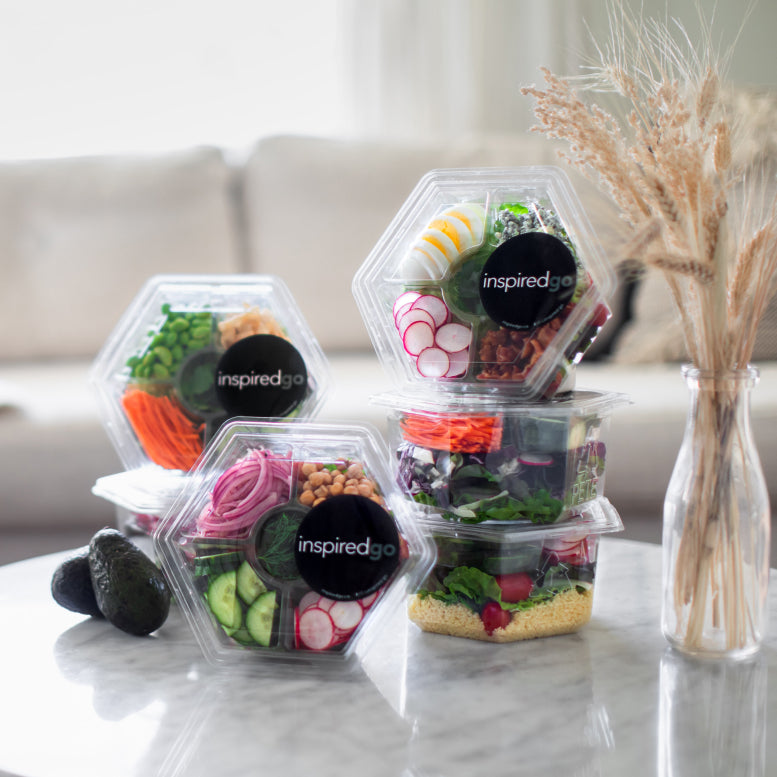What Can You Not Eat On A Vegan Diet?
Table of Contents
1. Navigating Vegan Dietary Restrictions
2. What Is a Vegan Diet?
3. Why Are Vegan Meal Delivery Services Convenient?
4. How Can I Eat Healthy Without Cooking?
1. Navigating Vegan Dietary Restrictions
When adopting a vegan lifestyle, it's crucial to be aware of what you should exclude from your diet. At the heart of veganism is the principle of completely avoiding animal products. This includes obvious items such as meat, fish, and poultry, but also extends to dairy products like milk, cheese, yogurt, and butter. Eggs are also off-limits, as are honey and other bee products. Additionally, certain food additives and ingredients derived from animals, such as gelatin, certain types of food colorings, and some forms of vitamin D3, are not vegan-friendly. Even some alcoholic beverages are unsuitable due to the use of animal products in their filtration processes. It's important to read labels carefully and familiarize yourself with potentially non-vegan ingredients to successfully maintain a vegan diet.
Order fresh salads today →


2. What Is a Vegan Diet?
A vegan diet focuses on consuming plant-based foods while eliminating all animal products, including meat, dairy, and eggs. This lifestyle emphasizes fruits, vegetables, grains, nuts, seeds, and legumes to meet nutritional needs. Vegan meal delivery services simplify this dietary choice by offering pre-prepared meals crafted with balanced macronutrients and essential vitamins. These services ensure that vegan meals are not only nutritious but also delicious and diverse, featuring creative recipes inspired by global cuisines. Additionally, vegan diets are often linked to health benefits such as improved heart health, better digestion, and weight management. By providing easy access to plant-based meals, vegan meal delivery eliminates the challenges of recipe planning, grocery shopping, and meal prep, making it convenient for both long-term vegans and those exploring a plant-based lifestyle.
Choose your salads and schedule delivery →
3. Why Are Vegan Meal Delivery Services Convenient?
Vegan meal delivery services eliminate many of the common challenges associated with plant-based eating, such as sourcing specialty ingredients, meal prep time, and recipe planning. Customers can simply select meals from an online menu and have them delivered directly to their homes. Pre-portioned servings remove the guesswork from meal preparation and reduce food waste. Additionally, clear nutritional labeling makes it easy to track macros and calories. For busy professionals or those new to veganism, these services offer a seamless way to maintain a plant-based diet without hassle. With flexible delivery schedules and diverse menu options, vegan meal delivery provides unmatched convenience for healthy eating.
Get fresh salads and snacks delivered →
4. How Can I Eat Healthy Without Cooking?
Inspired Go eliminates the need for time-consuming meal prep and cooking while still delivering healthy, delicious vegan meals. With pre-prepared dishes crafted by expert chefs and dietitians, Inspired Go ensures every meal meets high nutritional standards without requiring any effort from the customer. Their ready-to-eat vegan meals are delivered fresh, packed with balanced ingredients, and portioned to support consistent nutrition. Customers can simply unpack, serve, and enjoy their meals without worrying about chopping vegetables, measuring portions, or cleaning up afterward. Inspired Go’s vegan meal delivery provides a seamless solution for busy individuals, professionals, or anyone seeking a healthier lifestyle without the time investment of traditional cooking. Eating healthy has never been more convenient, accessible, or enjoyable.
Try our fresh, ready-to-eat salads →
Frequently Asked Questions
The key difference between vegan and vegetarian diets lies in the exclusion of animal products. Vegetarians avoid meat, poultry, and fish but may consume animal-derived products like eggs, dairy, or honey. Vegans, on the other hand, exclude all animal products, focusing solely on plant-based foods. Veganism is often a lifestyle choice, avoiding animal products in all forms, including clothing and cosmetics.
A vegan diet consists entirely of plant-based foods, including fruits, vegetables, grains, nuts, seeds, and legumes. It excludes all animal-derived products, such as meat, fish, dairy, and eggs. This diet emphasizes nutrient-dense, whole foods, though processed vegan alternatives are available. A vegan diet, when well-balanced, supports good health and environmental sustainability, making it popular for ethical, health, and ecological reasons.
Not all vegan diets are gluten-free. While veganism excludes animal products, gluten is a protein found in wheat, barley, and rye, which are plant-based and commonly included in vegan meals. To maintain a vegan and gluten-free diet, focus on naturally gluten-free foods like fruits, vegetables, rice, quinoa, and gluten-free grains. Always check labels for hidden gluten in processed vegan foods.
On a vegan diet, you can enjoy a wide variety of plant-based foods, including fruits, vegetables, legumes, nuts, seeds, whole grains, and plant-based dairy alternatives. Popular vegan dishes include stir-fries, salads, grain bowls, soups, and curries. Incorporating fortified foods or supplements ensures you meet nutrient needs like B12, iron, and omega-3s, making the diet balanced and enjoyable.
A vegan diet can be very healthy when balanced and diverse. It’s rich in fiber, vitamins, and antioxidants, while being lower in saturated fat and cholesterol. These factors contribute to better heart health, weight management, and reduced risk of chronic diseases. However, careful planning is essential to ensure adequate intake of nutrients like vitamin B12, iron, and protein for overall health.

